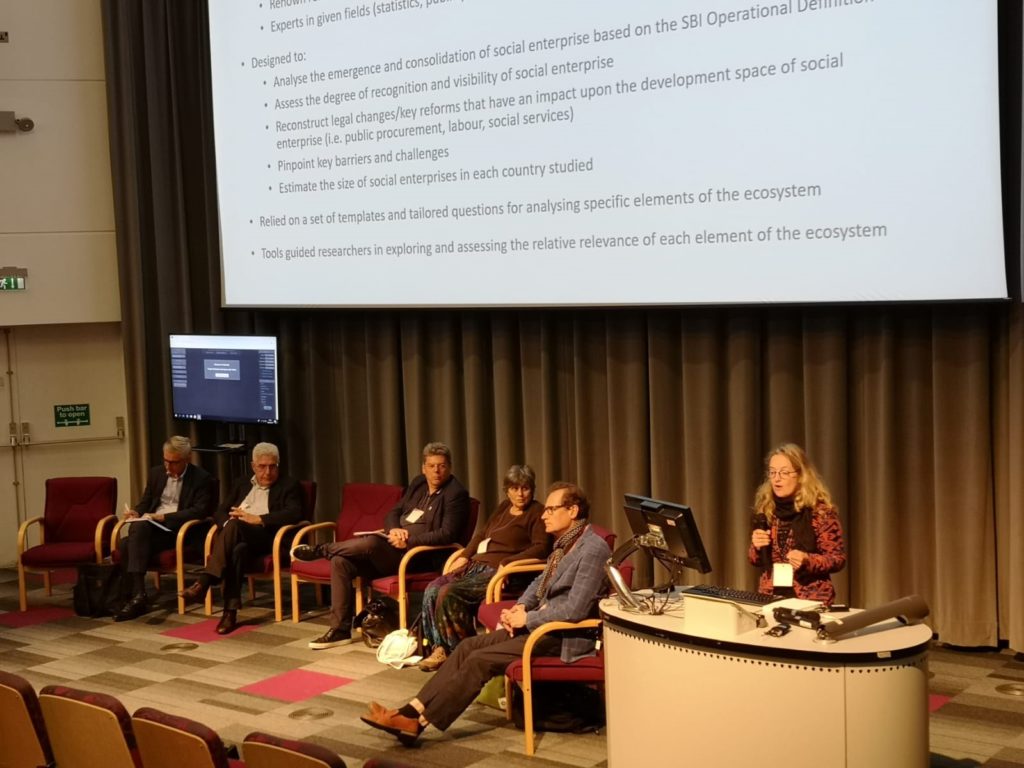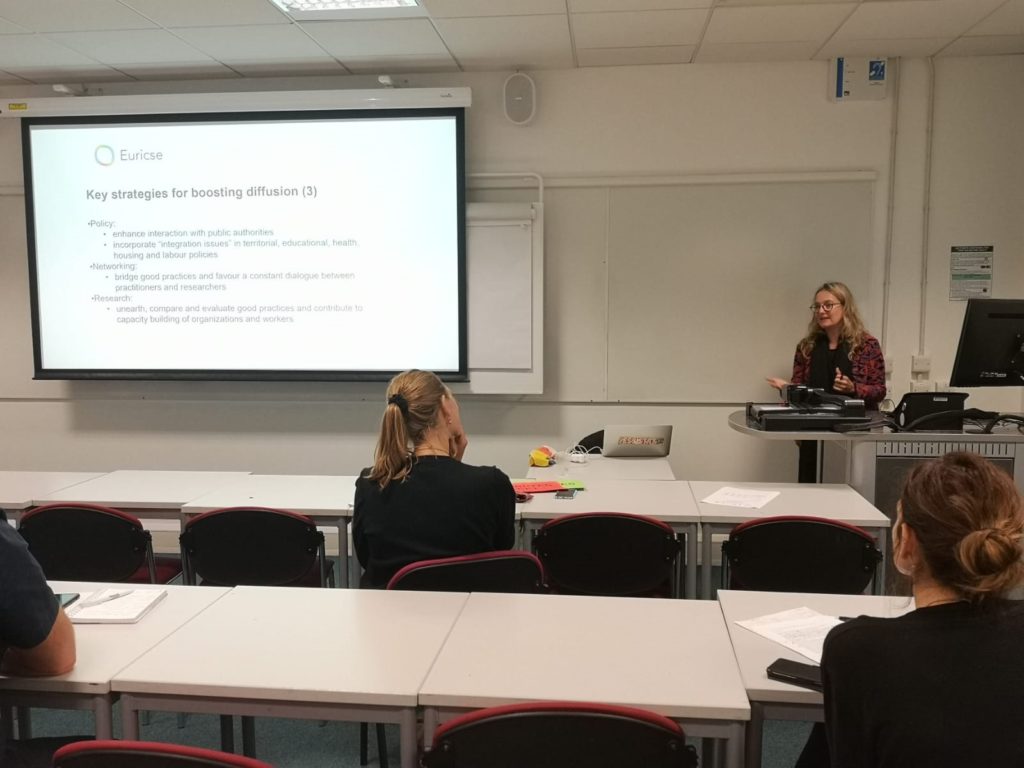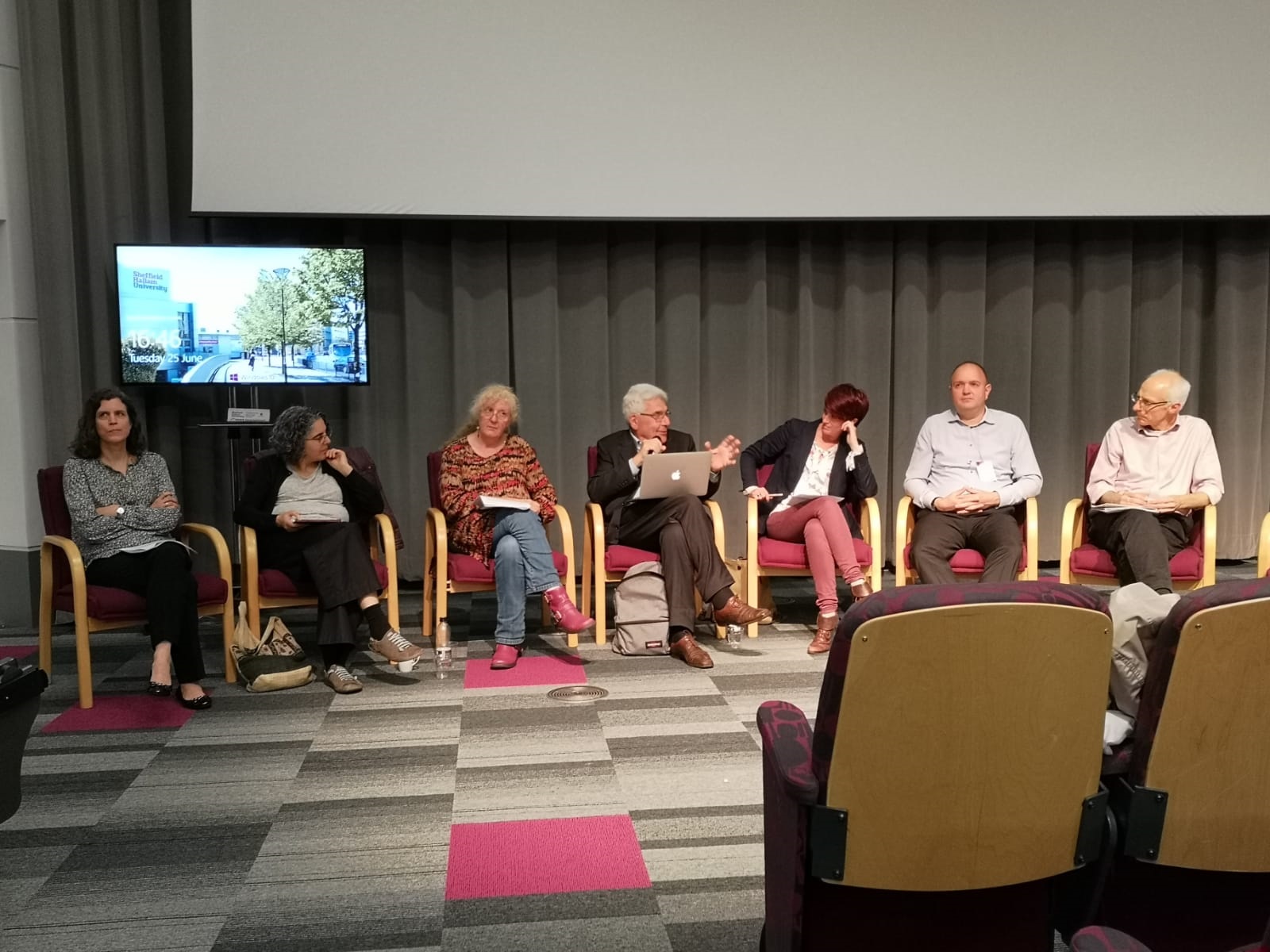Euricse at 7th EMES International Research Conference
EURICSE researchers Giulia Galera and Stefania Chiomento, together with EURICSE president Carlo Borzaga, are participating in the 7th EMES International Research Conference on Social Enterprise held from 24th June to 27th June in Sheffield (UK).
They contributed to one semi-plenary session chaired by professor Jacques Defourny entitled “Mapping of social enterprise and its ecosystem in Europe”, where they summarized the main findings of the European study funded by the DG Employment “Social enterprises and their eco-systems in Europe”. Professor Nadja Johanishova, professor Bernard Enjolras and Risto Raivio, Senior Expert at the DG EMPL, European Commission, also contributed to the discussion by providing their own insights based on the critical transversal analysis of the Mapping Study Country Reports.

Add to this, Giulia Galera and Paolo Boccagni (University of Trento) organized a special session aimed at discussing the findings of recent research on innovative welcome and integration pathways – addressed to asylum seekers, protection holders, refugees and migrants – that have been designed by grass-root social enterprises in four selected EU countries: Italy, France, Germany and Spain.
As highlighted during the conference, these countries show significant variations when it comes to the role played by social enterprises in the asylum and migration domains. Key variations concern the organization of welfare service delivery; the national model of reception designed by national governments to welcome asylum seekers and the degree of centralization; what selection mechanisms are used to recruit private providers; whether there are any national schemes supporting employment and labour market access of asylum seekers.

“Despite country variations, there are some common challenges that are faced by social enterprises. These are mainly connected to the increase in number of volunteers that are willing to help recipients, to the recruitment and training of new staff, and to the types of interactions established by social enterprises with public authorities”.
Giulia Galera, senior researcher at Euricse
Discussion focused particularly on the role, potential and limitations faced by social enterprises on the one hand and on the policy strategies that could be put in place to fully harness the contribution of social enterprises in facing social transformations connected to the inclusion of newcomers in receiving communities, on the other hand.
Here the list of papers discussed during the session:
- Good practice through diffusion: insights from asylum seeker reception in Italian social enterprises (Paolo Boccagni, University of Trento and Giulia Galera, Euricse)
- The French reception system: constraints and forms of resistance from the local organisations. The case of Marseille (Giorgia Trasciani PhD Candidate, University of Aix-Marseille, University of Naples, L’Orientale)
- Solidarity action in refugee housing: An example from Leipzig, Germany (Jennifer Eschweiler, Roskilde University, Denmark)
- Innovations in social enterprises in the refugee sector in Spain (Carmen Guzmán , University of Seville, Spain, Francisco J. Santos University of Seville, Spain, Francisco Santolaya, University of Seville, Spain)
